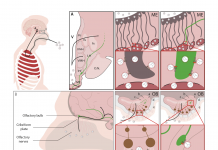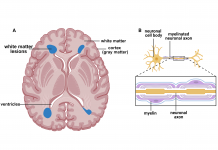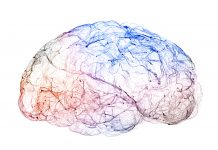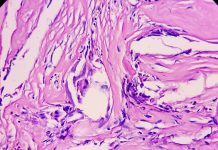Open Access Government produces compelling and informative news, publications, eBooks, and academic research articles for the public and private sector looking at health, diseases & conditions, workplace, research & innovation, digital transformation, government policy, environment, agriculture, energy, transport and more.
Home 2023
Archives
Brain infection by SARS-CoV-2: Lifelong consequences
The WATCH team, founded to elucidate the role played by specialized brain cells called tanycytes in various physiological processes, has been investigating how and where the SARS-CoV-2 virus infects the brain, and some long-term consequences of this neuro-invasion.
A wonder therapy for knee osteoarthritis
Professor Shaw-Ruey Lyu from the Dalin Tzu-Chi Hospital discusses the benefits of arthroscopic cartilage regeneration facilitating procedure (ACRFP) as an alternative to traditional methods of treating knee OA.
What is the link between white matter lesions and neurodegeneration?
Tara M. DeSilva from the Department of Neurosciences, Cleveland Clinic, examines the link between white matter lesions and neurodegeneration.
Primary care and medical education for Japan’s ageing population
Prof Junji Haruta from Keio University highlights Japan’s ageing population, focusing on challenges and innovations in primary care, plus medical education.
Treatments for ADHD: Can neurotherapies help treat children and adults?
Professor Katya Rubia from the Institute of Psychiatry, Psychology, and Neurosciences at King’s College London discusses the potential of non-invasive brain therapies, including neurofeedback, as treatments for ADHD.
Addressing ageism in healthcare through gerontological nursing
Sherry Dahlke, Associate Professor at the Faculty of Nursing, University of Alberta, discusses the impact of ageism in healthcare and why gerontological nursing education is vital for improving awareness and patient care.
Role for retired internists in rural, underserved communities
Richard J Santen MD, Emeritus Professor of Medicine, Davison of Endocrinology and Metabolism, University of Virginia, Charlottesville, Virginia, U.S., charts the role of retired internists in rural, underserved communities, including diabetes telemedicine.
Advanced brain injury detection and protection
The U.S.-based PANTHER program is pioneering a physics-based approach to TBI for quantitatively and deterministically linking the physics of a head insult to the resulting biological injury response. Christian Franck and Alice Lux Fawzi discuss.
From byte to bedside: Ushering in the era of digital oncology to outsmart cancer
Philip Dunne and Mark Lawler from the Patrick G Johnston Centre for Cancer Research talk to us about the emerging field of ‘digital oncology’ and how their approach can truly optimise cancer research and care.
Current and future therapy for BRAF-mutant pediatric glioma
Professor Peter J. Houghton from the Greehey Children’s Cancer Research Institute discusses new approaches to pediatric cancer treatment specifically for BRAF-mutant pediatric glioma.
Personalized medicine: “Tyranny of the gene”
Dr Priya Hays, Ph.D., CEO/Science Writer at Hays Documentation Specialists, LLC, responds to “Tyranny of the Gene.” Is personalized medicine a threat to public health? Not really, but yes, it’s an argument for price controls and perhaps more regulations; we hear.
Effective vaccines for non-communicable diseases – A pipe dream?
Markus Mandler, Founder and CEO of Tridem Bioscience, explains how the company’s cutting-edge vaccine platform is revolutionising treatment approaches and vaccines for non-communicable diseases (NCDs).
Knee health promotion and cell therapy for knee osteoarthritis
Shaw-Ruey Lyu, Professor from Dalin Tzu-Chi Hospital, Tzu-Chi University, says that the knee health promotion option and cell therapy are a perfect combination for knee osteoarthritis.
The role of prescribing practices in managing chronic pain with opioids
Norm Buckley and Jason Busse from the Michael G. DeGroote Institute for Pain Research and Care discuss prescribing practices, managing chronic pain with opioids, and the contribution of licit and illicit opioids towards the Canadian opioid crisis.
Fathers matter: Supporting new dads during the transition to parenthood
Deborah Da Costa, PhD, Associate Professor at the Department of Medicine, McGill University, Scientist at McGill University Health Centre, details promoting and supporting new dads during the transition to parenthood.
The Mediterranean Diet (MedDiet): There’s more to it than olives and grape leaves
Centered around the consumption of whole and unprocessed foods, we hear how following a Mediterranean diet can bring long-term health benefits, including mitigating the risk of common diseases.
RESCUER: Supporting new concepts for breast cancer subtypes treatment
RESCUER is an EU Horizon 2020 project, coordinated by the University of Oslo, Norway, that aims to predict treatment response and test new combinational therapies for complex breast cancer subtypes.
Stress and coping during COVID-19
Marian Adriaansen and Henk Poppen from HAN University of Applied Sciences discuss their research on how Bachelor’s students in nursing coped with the impact of the COVID-19 pandemic.
Wastewater surveillance for infectious disease preparedness
The University of Oklahoma Wastewater Based Epidemiology (OU WBE) team highlights successes from their three years of wastewater surveillance in Oklahoma & how this surveillance approach can be used as next-level monitoring for infectious disease preparedness.
Psychotic-like experiences: What are they and why are they important?
Dr Lorna Staines and Professor Mary Cannon of RCSI University of Medicine and Health Sciences, explore psychotic-like experiences, explaining what they are and why they are important.





















